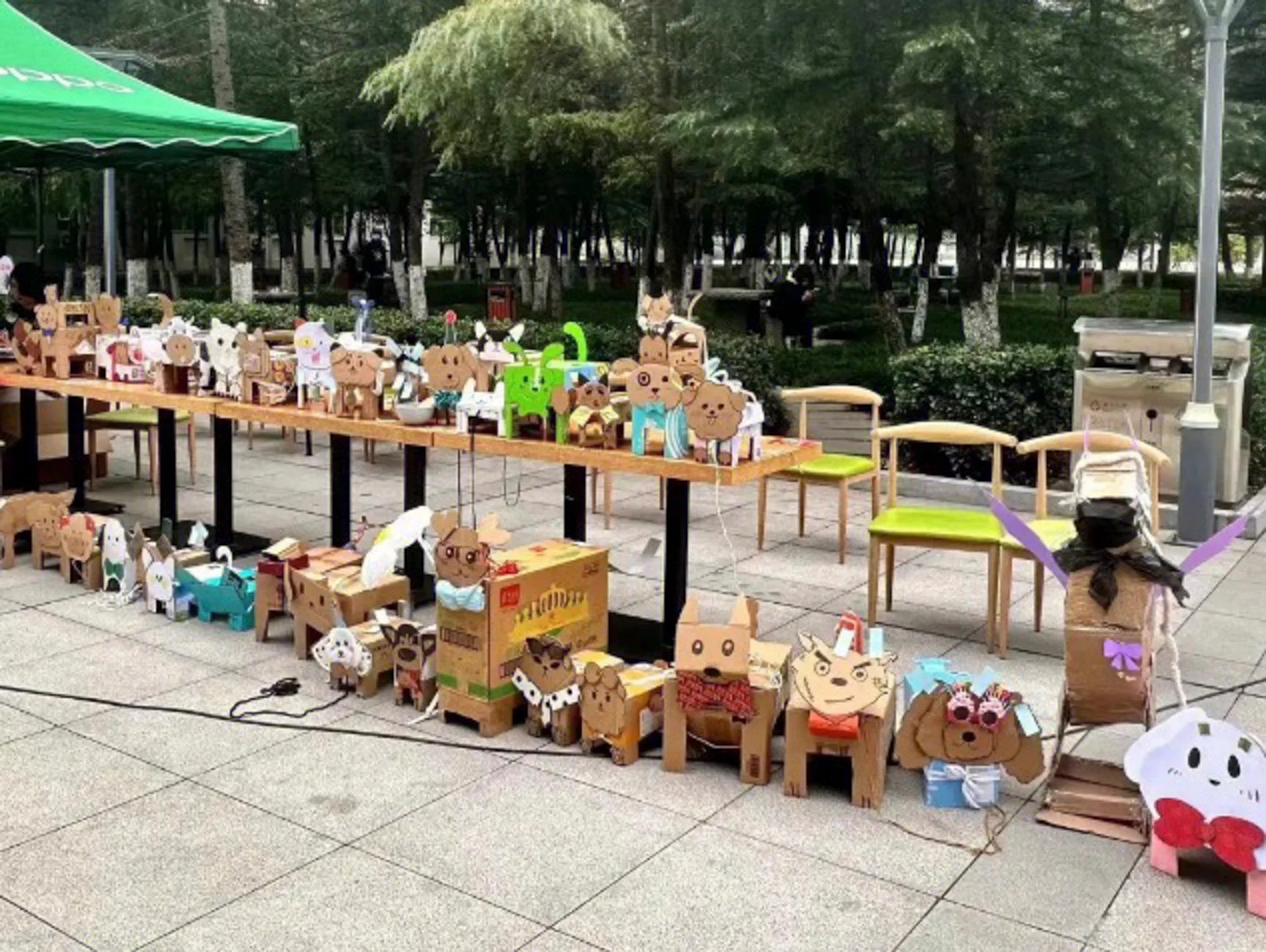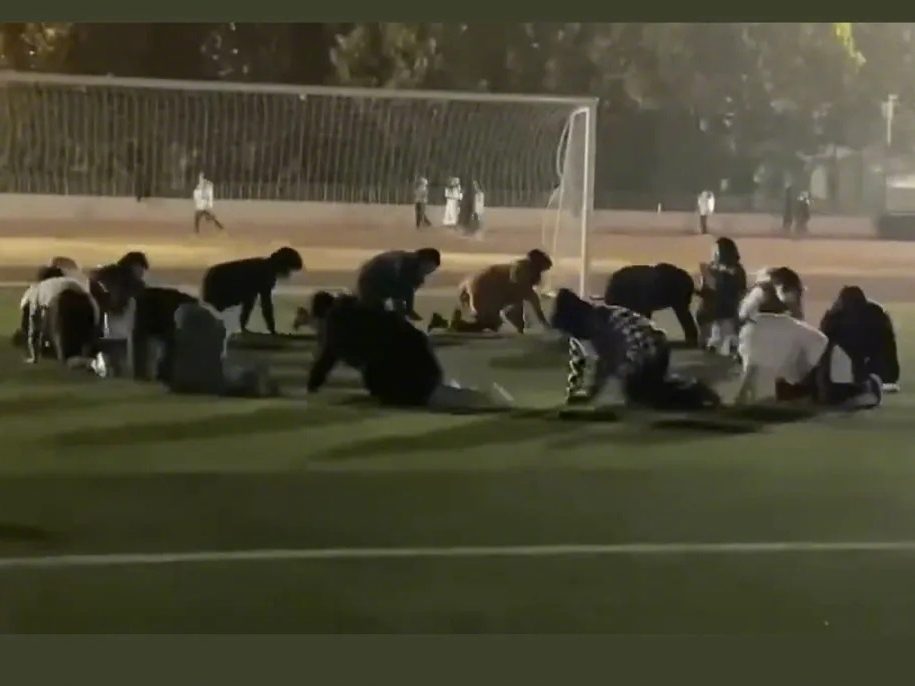China Report is MIT Technology Review’s newsletter about technology developments in China. Sign up to receive it in your inbox every Tuesday.
Honestly, it’s hard to keep up with the news these days. If you aren’t already consumed with the slow-moving implosion of Twitter or the quick collapse of crypto exchange FTX, there are also the flashy global summits COP27 and G20 to keep track of. Is everyone trying to get their news out now so they can have a quieter holiday season?
In the most high-level news, on Monday Biden met with Xi for the first time in five years. Their session on the sidelines of the G20 summit was, I’d say, pretty uneventful, with both heads of state agreeing that in-person meetings are better than Zoom calls. Groundbreaking insight!
But snark aside, to have the leaders of the US and China in one room, engaging in a civil discussion about the importance of such civil discussions, is actually a big deal—a good but rare thing to happen in 2022. It’s a move that may finally cool down raging geopolitical tensions. Plus, the two countries agreed to resume diplomatic talks on common concerns like climate change, which is undoubtedly a positive thing for the world.
But enough about the politicians for now; I’ll include more links to coverage below.
For today’s newsletter, I want to focus instead on the people who get hurt when geopolitics go wrong. Last week, my colleague Eileen Guo wrote about a historic settlement won by Chinese-American scientist Sherry Chen, who was wrongly accused of being a Chinese spy.
To briefly recap, Chen, a hydrologist, was arrested on espionage charges and fired from her research job at the National Weather Service. The bogus charges were later dropped, and the internal investigative unit that pursued her case was even disbanded—but Chen was still out of a job. In 2019, she filed a civil lawsuit against the US government for malicious prosecution. On Thursday, her lawyers announced that the US Commerce Department will pay Chen an unprecedented settlement of $1.75 million, yet there’s no public apology. You can read Eileen’s full story here.
Chen’s case began in 2012, back when Obama was president and relations between the US and China were much warmer than they are now. But the case feels particularly timely now, as it offers a clear lesson on why subsequent federal prosecutorial campaigns—like the China Initiative, a Department of Justice effort that Eileen and my other colleagues investigated last year—can go terribly wrong. And they leave the individual on the other end pretty much powerless.
In thinking about cases like Chen’s, I’m most struck by just how hard it is to go up against a powerful federal agency to hold it accountable.
It took a decade for Chen to win some kind of justice. How many people can afford to be suspended from their career for so long and put themselves in a seemingly endless legal battle?
Chen declined an interview request from MIT Technology Review but said through her lawyer that she’s “currently thinking through [her] next steps.” But her friend Gang Chen, an MIT scientist who has also been wrongfully accused of spying for China (and is not related to Sherry Chen), tells us he feels her pain.
“Despite the victory, it is important to remember that this was a decade of Sherry’s life,” Gang Chen says. “I reflect on the years that so many have lost, including myself, and the trauma that lingers on for those directly impacted and for their families. Victories, such as this, alone do not fully compensate for what has been lost.”
Secondly, Sherry Chen’s case is an anomaly—in that a broad pattern of misconduct by her accusers was proven definitively. One of the biggest criticisms of the China Initiative is that law enforcement casts doubt on activities that certain ethnic groups engage in every day, like traveling back home. It’s usually hard to prove racial bias in court. But in Chen’s situation, the Investigations and Threat Management Service (ITMS), an internal security unit at the Commerce Department that started investigating Chen in 2012, was found to be particularly blatant in its racial profiling practices.
A 2021 report from the Senate Commerce Committee revealed that ITMS “ran ethnic surnames through secure databases,” targeted an employee “purely because of her ethnic Chinese origin,” and “broadly targeted departmental divisions with comparably high proportions of Asian-American employees.” This led to an internal investigation of ITMS, and the unit was shut down in September 2021.
Obviously, not all government malpractice is revealed in heavyweight Senate reports, and much more is certainly swept under the rug. “You rarely get a smoking gun such as that, breaking open a case,” says Frank Wu, a lawyer, activist, and president of Queens College at the City University of New York. (Wu consulted on Chen’s case but never acted as her lawyer.)
And even though Chen won her settlement and the DOJ ended the China Initiative, that doesn’t mean the implicit bias that set in motion such discriminatory prosecutions has gone away. It may have just become more covert.
Lastly, Chen’s win doesn’t necessarily mean others in her situation will have an easier time getting justice. Yes, Chen’s settlement was the first of its kind for a wrongfully accused Chinese-American scientist, and people certainly hope it will set a precedent. But the reality is likely not that straightforward.
“I have not seen the settlement, but I fully expect that it is worded to make clear that this is specific to this particular case,” says Margaret Lewis, a professor of law at Seton Hall University who focuses on criminal justice and human rights. “I am confident that the government was careful to avoid any indication that it was setting a broader precedent.” That would mean other scholars fighting their own wrongful prosecution cases couldn’t just point to Chen’s case and argue that the same decision should apply.
Nevertheless, after all the difficulties Chen has endured, news of the settlement offers a glimmer of hope for others trying to get some form of accountability from the federal government. An activist working in this field told Eileen that at least one federal employee in a similar situation “felt encouraged for his own case” after hearing about Chen’s win.
“The fact that the settlement occurred means that a settlement is possible. It happened once, so it could happen again,” says Lewis.
Eileen Guo contributed reporting to today’s newsletter. What do you think of Sherry Chen’s experience? Write me at zeyi@technologyreview.com.
Catch up with China
1. As I know China Report’s loyal readers have been clamoring for it: Here’s the palm-print recognition story I promised in an earlier newsletter, showing how Tencent could soon popularize the use of palm-print recognition tech in daily life in China. Why do some people say it’s safer than facial recognition, while others think it’s a slippery slope to more surveillance? (MIT Technology Review)
2. Taiwan took center stage in Biden and Xi’s three-hour talk on Monday. While Biden objected to China’s recent aggressive actions, Xi said the Taiwan issue is the “first red line” that shouldn’t be crossed. (Reuters $)
3. The Chinese government announced 20 measures to adjust its zero-covid policies, including easing mandatory quarantines, ending dynamic international flight bans, and ceasing the practice of monitoring secondary contacts of covid patients. (Bloomberg $)
4. A German city that planned to become “smart” with Huawei’s help decided to put the deal on hold, partly because of Beijing’s ties with Moscow. (South China Morning Post $)
5. To become an efficient e-commerce platform, TikTok is scoring all influencers on their ability to sell goods and attract eyeballs. (Marketwatch $)
6. Apple now limits the time a Chinese iPhone can be visible to public AirDrops after the feature was repeatedly used to spread messages criticizing the Chinese authorities anonymously. (Vice)
7. Chinese startups want to go global, but they are trying to hide their connection to home because that alone can be viewed as a national security threat. (TechCrunch)
8. A Chinese state-owned broadcaster acquired a small stake in Kuaishou, TikTok’s main rival in China. Other state-owned entities have also been acquiring stakes in ByteDance and Weibo in recent years. (The Information $)
9. Remember last week when China said that developed countries should pay their climate dues? Now at COP27, small island nations are demanding that China and India pay for their heavy emissions, too. (Reuters $)
Lost in translation
After covid spread in Foxconn’s gigantic iPhone factory in Zhengzhou, China, last month, many of the over 200,000 workers decided to quit the factory and return to their home cities. But what has life been like for those who chose to stay?
Beijing Youth Daily spoke to many remaining workers to understand what’s been going on over the past month. Most of the workers decided to stay either because they can’t afford to pay a quarantine hotel when they get out or because they can’t say no to the increased wages Foxconn is offering (sometimes 300% more!) to maintain production capacity.
But internal management has been chaotic. Rules on covid testing were changing every week, and Azvudine, a Chinese antiviral drug that has been only conditionally approved in the country, was distributed to workers without telling them what it was. But the situation started to stabilize in November, and Foxconn is now recruiting its old workers with a welcome-back bonus of 500 RMB ($70).
One more thing
Are the kids alright? I know college life has been different over the past two years in China, as covid restrictions limit students’ physical interactions and often confine them to campuses. But there has been some head-scratching news coming out of college dorms lately. Some students are competing to raise the most sophisticatedly handcrafted cardboard pets, while others are crawling on the ground in circles, “releasing their inner madness.” I mean, young people always invent their own ways to have fun, but it’s getting harder and harder to understand. Or maybe I’m just getting old?


See you next week!
Zeyi
